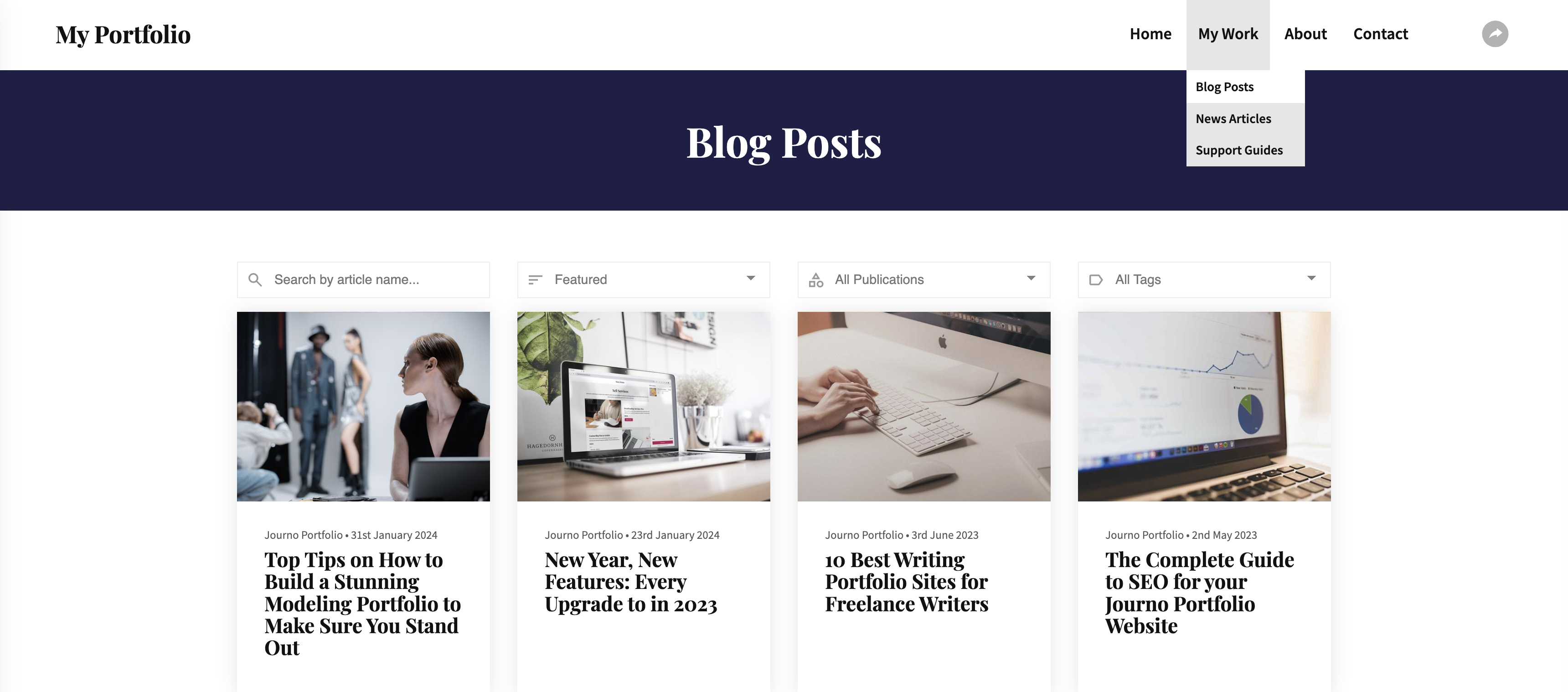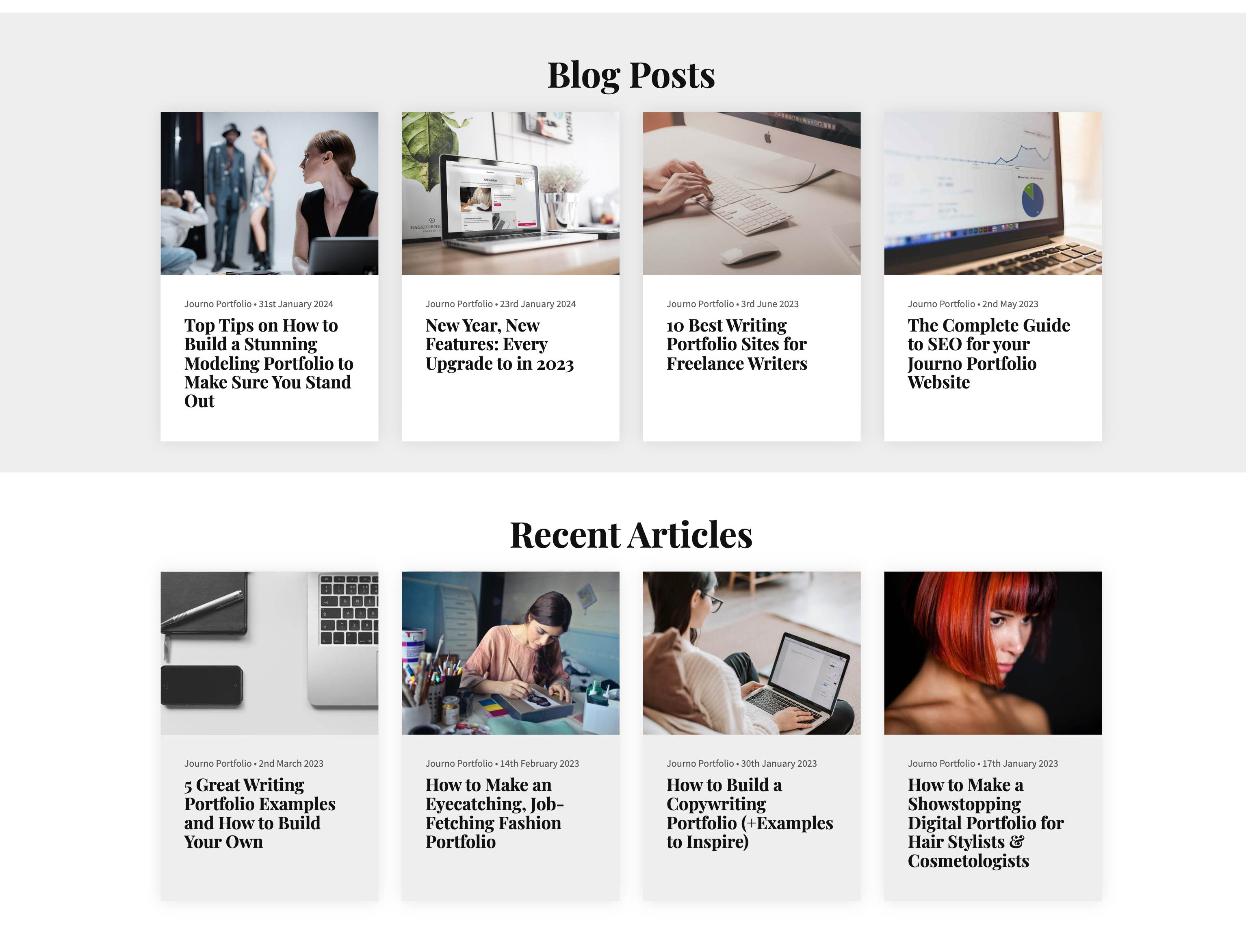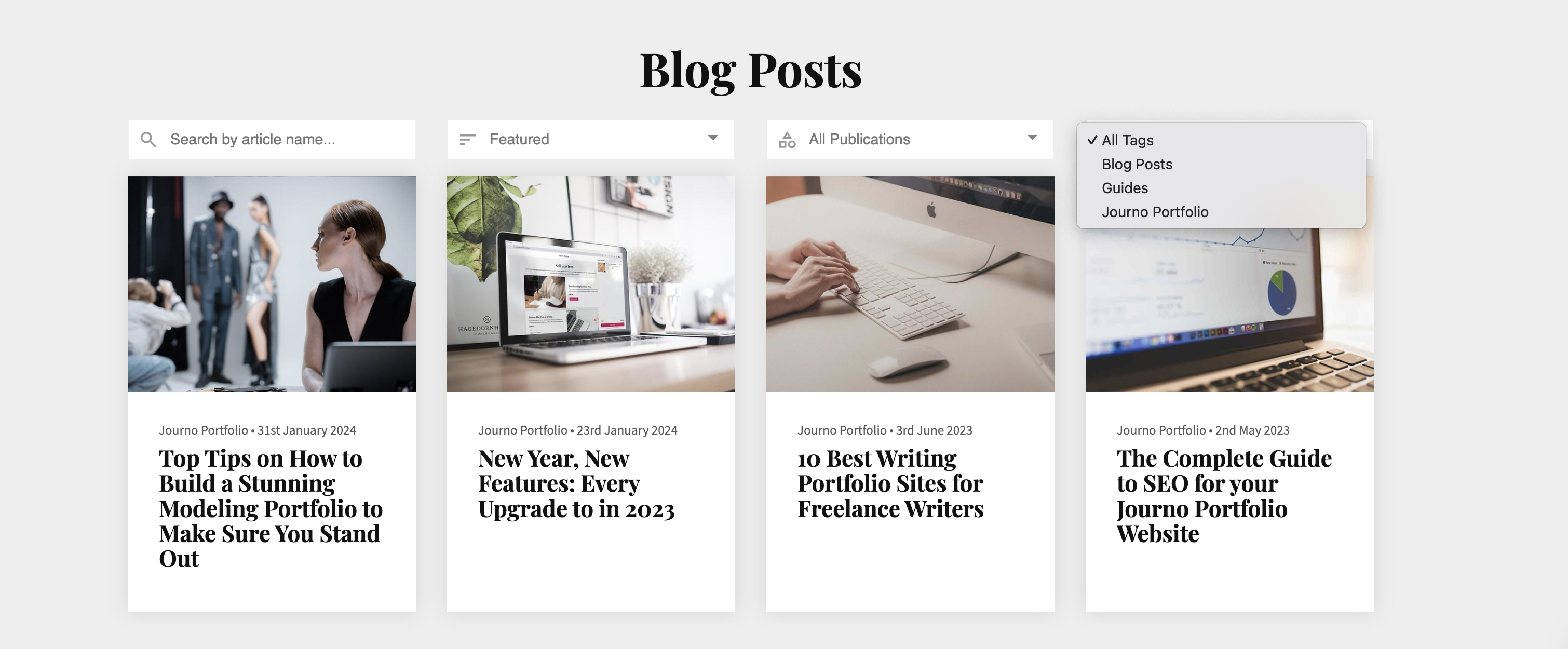Organizing your portfolio in a clear, accessible manner is crucial for showcasing your work to potential clients or employers. With the right structure, visitors can effortlessly navigate through your work, gaining a comprehensive understanding of your skills and experiences.
In this article, we'll show you three distinct methods to categorize your portfolio, ensuring there's an option that suits your needs, regardless of the volume or diversity of your work. From utilizing page dropdowns for extensive portfolios, implementing multiple sections on a single page for a concise showcase, to employing block filters for a dynamic browsing experience, we'll provide step-by-step instructions to help you set up a portfolio that stands out.
Option 1: Page Dropdowns
Use pages and sub-pages to create a dropdown in your navigation, with one page for each category.
This is the best option if you have a significant number of items to display.
 Example dropdown
Example dropdownRead the how-to:
Option 2: Multiple Sections
Display multiple portfolio items sections on the same page, each in their own section with their own headings. Great for a one-page portfolio site or if you only have a few items in each collection.
 Example of two sections to showcase different collections of work.
Example of two sections to showcase different collections of work.Read the how-to:
Option 3: Block Filters
Keep all of your work in one block but enable these filter options to make it easier to quickly search, re-order or filter by publication or tag.
 Example articles block with filters enabled.
Example articles block with filters enabled.Read the how-to: